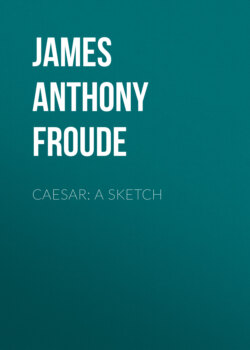Читать книгу Caesar: A Sketch - James Anthony Froude - Страница 3
На сайте Литреса книга снята с продажи.
PREFACE.
ОглавлениеTable of Contents
I have called this work a "sketch" because the materials do not exist for a portrait which shall be at once authentic and complete. The original authorities which are now extant for the life of Caesar are his own writings, the speeches and letters of Cicero, the eighth book of the "Commentaries" on the wars in Gaul and the history of the Alexandrian war, by Aulus Hirtius, the accounts of the African war and of the war in Spain, composed by persons who were unquestionably present in those two campaigns. To these must be added the "Leges Juliae" which are preserved in the Corpus Juris Civilis. Sallust contributes a speech, and Catullus a poem. A few hints can be gathered from the Epitome of Livy and the fragments of Varro; and here the contemporary sources which can be entirely depended upon are brought to an end.
The secondary group of authorities from which the popular histories of the time have been chiefly taken are Appian, Plutarch, Suetonius, and Dion Cassius. Of these the first three were divided from the period which they describe by nearly a century and a half, Dion Cassius by more than two centuries. They had means of knowledge which no longer exist--the writings, for instance, of Asinius Pollio, who was one of Caesar's officers. But Asinius Pollio's accounts of Caesar's actions, as reported by Appian, cannot always be reconciled with the Commentaries; and all these four writers relate incidents as facts which are sometimes demonstrably false. Suetonius is apparently the most trustworthy. His narrative, like those of his contemporaries, was colored by tradition. His biographies of the earlier Caesars betray the same spirit of animosity against them which taints the credibility of Tacitus, and prevailed for so many years in aristocratic Roman society. But Suetonius shows nevertheless an effort at veracity, an antiquarian curiosity and diligence, and a serious anxiety to tell his story impartially. Suetonius, in the absence of evidence direct or presumptive to the contrary, I have felt myself able to follow. The other three writers I have trusted only when I have found them partially confirmed by evidence which is better to be relied upon.
The picture which I have drawn will thus be found deficient in many details which have passed into general acceptance, and I have been unable to claim for it a higher title than that of an outline drawing.
